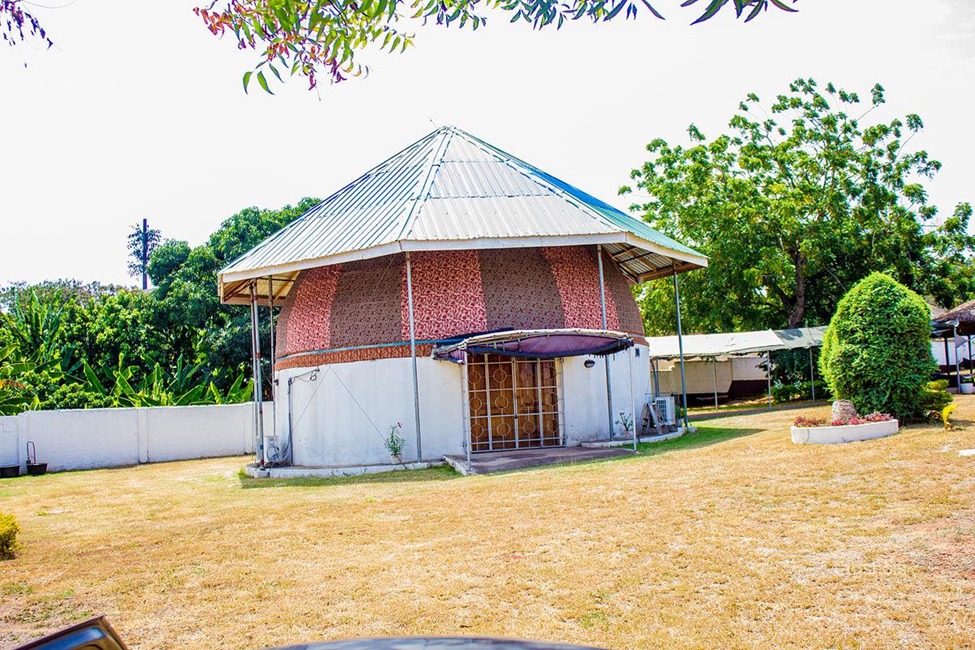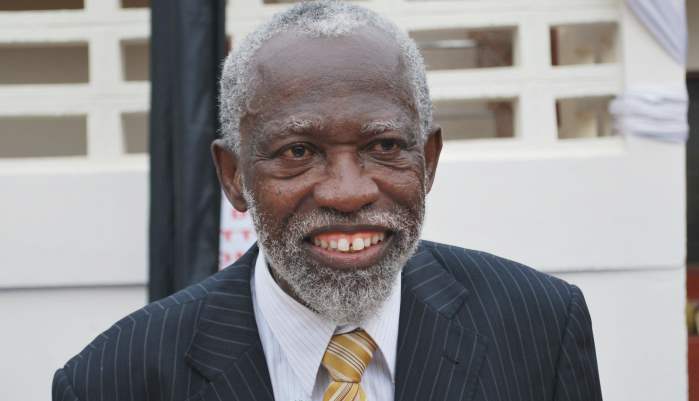A planetarium is a ‘sky theater’ where special projectors create a simulation of the night sky on a dome ceiling. An observatory is a place where telescopes are used to view the actual night sky, so the dome of an observatory does open, unlike the one in a planetarium.
On a crisp Thursday, January 22nd, 2009, The Ghana Planetarium was officially opened by the British High Commissioner, His Excellency Dr. Nicholas Westcott, gracing the occasion.
Among the distinguished guests were the French Ambassador, the Chief of Nungua, and his entourage, the Director of the British Council, and Dave Weinrich from Minnesota, whose unwavering support made this ambitious project possible.
Since its inauguration in 2009, the Ghana Planetarium has held a unique position as the first and only planetarium in Ghana and West Africa. Furthermore, it stands as one of the very few digital planetariums across the entire African continent. This remarkable institution came into being through the dedication and passion of Jacob and Jane Ashong, a retired couple who selflessly contributed their pension funds to bring this dream to life.
Nestled behind the Ghana Police Headquarters in Cantonments, Accra, the Ghana Planetarium has evolved into a second home for science and astronomy enthusiasts in the country. It was envisioned as a place to ignite curiosity about the cosmos, a realm of wonder and discovery that beckoned to all who dared to look up.
The Accra Planetarium was designed to inspire curiosity about the universe. But as we’ll soon discover, it seems that time hasn’t been kind to this once-thriving center of astronomical exploration. As we approach the Accra Planetarium, the first thing that strikes us is the silence. What was once a hub of scientific discovery now sits in abandonment. The gates, some locked, tell a story of a place forgotten over the years.
It’s not just the absence of visitors that is noticeable; nature has also reclaimed its space here.
Birds have made themselves at home, fluttering about. The broken windows and peeling paint narrate a tale of years of neglect.
The disappointment is palpable as we step inside the Accra Planetarium. This place was meant to inspire generations to look up at the stars and dream about the wonders of the universe. Instead, it stands as a testament to the challenges faced by cultural and scientific institutions.
It is a stark reminder that the passage of time can erode even the most well-intentioned dreams.
The Accra Planetarium, once a beacon of knowledge and discovery, now stands as a symbol of the importance of preserving our cultural and scientific heritage.
In the comment section on TV3’s Instagram page, Dr. Ahong’s grandchild said “Dr Ashong is my grandad. Has his PhD in biochemistry and physics. He ate and breathed science. He lived most of his life in the U.K. and thought to give back to society because of his passion for science.
The facility was too much to be maintained by an individual. The aim was to encourage and promote the learning of science. Unfortunately, the government and other institutions refused to chip in after several attempts to seek sponsorship or funding. He is in the U.K. enjoying his retirement.”
As we wrap up our visit to the Accra Planetarium, it’s clear that this place is in desperate need of attention and restoration. It’s our hope that someday soon, this center of astronomical knowledge can once again open its doors to curious minds, rekindling the spark of curiosity about the universe in the hearts of all who visit.
Yet, as we leave the Accra Planetarium, a glimmer of hope remains. The call for attention and restoration echoes through its deserted halls. It’s our collective hope that, someday soon, this beacon of astronomical knowledge will open its doors once more. May it rekindle the spark of curiosity about the universe, inspiring generations to look up at the stars and dream once again.





